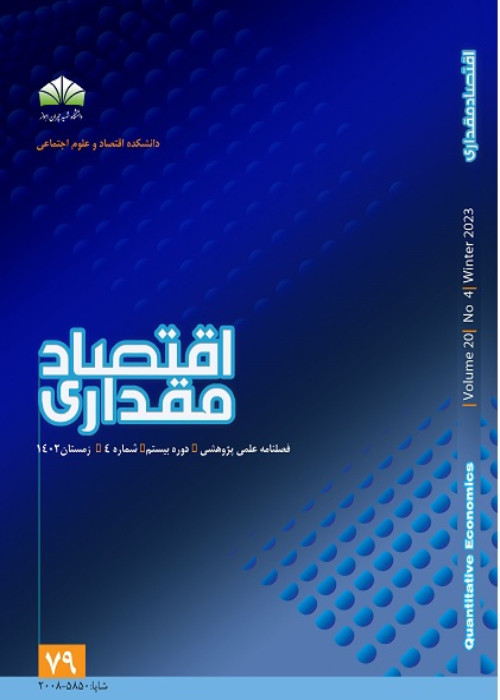Consumer Behavior Response to Macroeconomic Uncertainty (Case study: OPEC Countries(
Economic growth, effective factors and how to promote it have always been one of the most challenging issues in the economics and the most important goals of economic systems. Economic stability has been regarded as conspicuous among the factors affecting the growth. So, instability will change the outlook and make the results of economic activities unpredictable. Uncertainty is one of the concepts related to economic instability that has a long history in the economic literature. Considering the wide dimensions of the impact of uncertainty on the country's economy, addressing the impact of key economic variables on the issue of uncertainty is of great importance. Since Keynes introduced consumption as a function of income, various forms of income have become an integral part of the set of factors affecting consumption in all economic schools. The income needed to finance consumption also requires high and continuous economic growth. Therefore, uncertainty is also expected to affect consumption behavior.
Given the importance of this issue, this study was to investigate the direct and interactive effect of uncertainty on the consumers’ behavior. In this regard, the maximum available data on consumption expenditures (As an alternative of consumption), revenues, and money supply of OPEC countries over the period 2006–2018 was addressed. The economic uncertainty index was also calculated by MII method. All variables were considered in logarithmic and per capita form. Also, according to the nature of the model and the data used, the panel threshold Regression (PTR) model was used. In this model, the direct effect of uncertainty were measured by introducing the uncertainty index in the equation, and the interactive effect were measured by studying the role of the uncertainty index in the explanatory variables’ effect. Using this model required the presence of a threshold and a nonlinear relationship between the variables. Accordingly, the threshold effect test was used.
The results of threshold effect test showed that one threshold value for the uncertainty variable was confirmed. The results indicated that the uncertainty variable, as expected, has a negative effect on the logarithm of per capita consumption expenditure. The need for precautionary savings and uncertainty about the sufficiency of income in financing consumer needs due to increased uncertainty reduces current consumption expenditures. The variable of per capita money (as representative of individual wealth) in both regims had a positive effect on the logarithm of per capita consumption expenditure. The magnitude of the coefficients indicated that at high levels of uncertainty, this effect was reduced. The logarithm of per capita income also in both regims had a positive effect on the logarithm of per capita consumption expenditure. However, at high levels of uncertainty, this effect was reduced.
According to the results, it can be said that that uncertainty had a negative significant effect on per capita consumption expenditures in the countries and period under study. The variables of per capita income and wealth had a positive significant effect on consumption expenditures. In contrast, there is a positive and significant correlation between the variables of per capita income and wealth with current consumption expenditures. However, the effect of these variables was asymmetric in different uncertainty regimes. So that at high levels of uncertainty, this effect was reduced. Therefore, it can be said that uncertainty will also indirectly affect consumption expenditures by affecting income and wealth. Given the results of the study and the widespread dimensions of uncertainty, the study's authors advise policymakers to be committed to the announced policies and to exercise caution in implementing discretionary policies. It is also suggested that the study of the future consequences of uncertainty using futuristic methods (Futures studies) be given more attention by other researchers.
- حق عضویت دریافتی صرف حمایت از نشریات عضو و نگهداری، تکمیل و توسعه مگیران میشود.
- پرداخت حق اشتراک و دانلود مقالات اجازه بازنشر آن در سایر رسانههای چاپی و دیجیتال را به کاربر نمیدهد.




